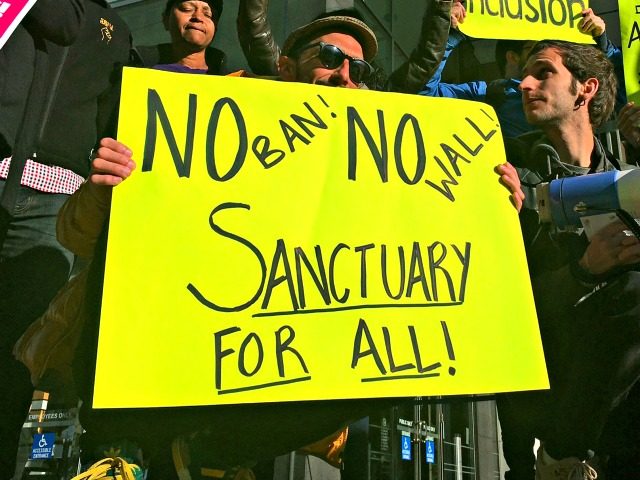U.S. District Judge William Orrick III in San Francisco issued a decision Thursday rejecting a request by the Department of Justice to reconsider his April decision to block President Donald Trump’s executive order threatening to cut funding from sanctuary cities.
After San Francisco and Santa Clara County sued earlier this year, Judge Orrick blocked the order on the grounds that it was too broad. He relied partly on “public comments” by the president and Attorney General Jeff Sessions in reaching that conclusion.
“Federal funding that bears no meaningful relationship to immigration enforcement cannot be threatened merely because a jurisdiction chooses an immigration enforcement strategy of which the president disapproves,” he said.
In response, Sessions issued a memorandum to clarify the executive order, indicating that “sanctuary jurisdiction” would only include those that “willfully refuse to comply” with 8 USC § 1373, the law that stipulates jurisdictions “may not prohibit, or in any way restrict, any government entity or official from sending to, or receiving from, [federal immigration officers] information regarding the citizenship or immigration status, lawful or unlawful, of any individual.” He also limited the funds at stake to those derived from discretionary Justice Department grants.
But on Thursday, the judge said that memorandum was not sufficient to satisfy his concerns about the order.
In his decision, Judge Orrick noted that while Sessions had persuasively argued that the narrow interpretation of the executive order was widely shared within the Department of Justice, that interpretation was “not legally plausible in light of the Order’s plain language and the government’s many statements indicating the Order’s expansive scope … `similar promises are routinely rejected by courts as illusory and should not impact the analysis here.” It was not clear, he added, that Sessions’s memorandum would be “binding authority on other federal agencies or [the Department of Homeland Security].” In addition, he said, Sessions could revoke the memorandum at any time.
The ruling leaves the federal government without current recourse to ensure that state and local authorities comply with federal immigration law.
In 2010, Democrats argued that immigration enforcement was a matter of exclusive federal jurisdiction, following Arizona’s passage of SB 1070, which sought to use state and local police to enforce federal immigration laws that the Obama administration had largely declined to carry out.
Joel B. Pollak is Senior Editor-at-Large at Breitbart News. He was named one of the “most influential” people in news media in 2016. He is the co-author of How Trump Won: The Inside Story of a Revolution, is available from Regnery. Follow him on Twitter at @joelpollak.

COMMENTS
Please let us know if you're having issues with commenting.